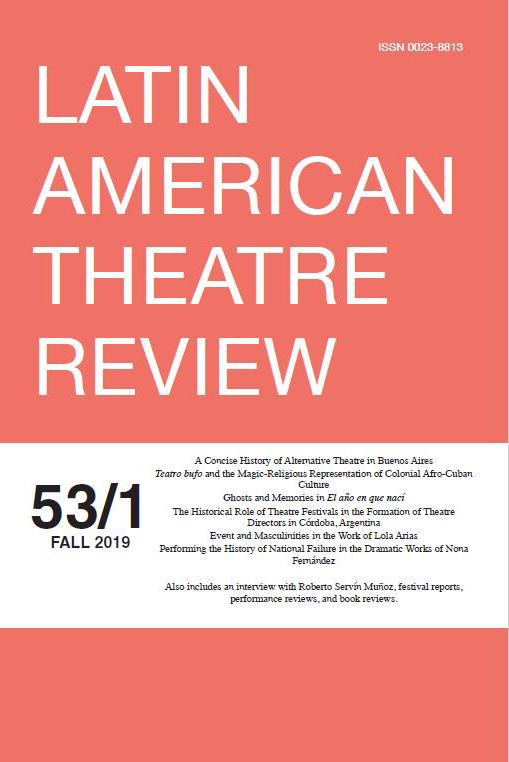Abstract
Resumen
Este artículo se propone explicar la consolidación histórica de una cierta forma de producción de obras en el teatro alternativo en la Ciudad de Buenos Aires. El trabajo sostiene que, en Buenos Aires, el aprendizaje de la actuación y la formación de obras se encuentran profundamente entrelazados a partir de ciertos teatros-escuelas organizados en torno a ciertos maestros de renombre, que también suelen ser directores (o actores) de teatro. La investigación propone tres momentos fundamentales para analizar la consolidación de esta lógica de producción: la épica y la ética de trabajo desarrollada a partir del teatro independiente (a partir de los 30s); el interés por la formación que surge a partir de la implementación de las técnicas de Stanislavski por Hedy Crilla (en los 60s); y la proliferación de maestros y estudios de distintos estilos y pedagogías, a partir de la vuelta de la democracia y hacia finales de siglo.
Abstract
This research aims to explain the historic process through which a certain way of producing plays in the alternative theater in Buenos Aires City took shape. The work argues that, in Buenos Aires, the process of learning acting and the productions of plays are profoundly intertwined through the institution of theaters that are also schools. These institutions are organized around the figure of a teacher that is also a theater director. The work sustains there were three main periods that were central to this process: the movement of independent theaters (since the 1930s); the growing interest of actors training and Stanislavski´s techniques (since the 1960s); and the proliferation of theater styles after the return of democracy and towards the end of the century.
All items © The Center of Latin American Studies and Caribbean Studies, The University of Kansas, Lawrence, Kansas 66045, U.S.A. Authors: If you prefer to remove your text(s) from this database please contact Dr. Stuart A. Day (day@ku.edu)
